With the coronavirus pandemic changing the ways we live beyond recognition, the recent boom in work from home culture is one of its major transformations. An incredible 42% of the US labor force is now working from home full-time, compared to 26% working on their business premises.
Now that the US and many other countries are dominated by the WFH economy, more and more workers find themselves pressured by toxic workplace dynamics. You see, the line between personal and professional is becoming blurred, and some workers are already experiencing its consequences big time.
Karan Tripathi, a lawyer and writer, has recently shared an illuminating thread on how his sister’s boss told her to pull up her sleeves and work 24/7 just like her male colleagues. “Offices are becoming ignorant towards the disproportionate burden of WFH on women,” Karan wrote.
The thread has instigated a heated discussion on toxic boss dynamics and the flaws of WFH culture, which is vulnerable to exploitation at the expense of female (and male) workers. So let’s see what people on Twitter had to say on the matter, which will surely give us all a lot to think about.
Karan Tripathi has recently shared an incident from the workplace of his data scientist sister

Image credits: Mohammad Shahhosseini (not the actual photo)
The stigma associated with working from home, which existed prior to the worldwide pandemic, has virtually disappeared. Today, companies employing this method are very common. The experts now forecast that as soon as the pandemic is over, the number of people working from home will explode.
The thread has stirred a heated debate on work from home culture, toxic bosses, and gender struggles

Image credits: TripathiGee
According to Stanford economist Nicholas Bloom, the 8% of all employees working from home at least a day a week in 2018 will soar in a post-pandemic world. “I suspect almost all employees who can work from home—which is estimated at about 40 percent of employees—will be allowed to work from home at least one day a week.”
This is because of three main reasons, says Bloom. First, the fear of crowds will motivate people to move away from urban centers and avoid public transport. Secondly, investments in telecommuting technology have paid off and by now, we have plenty of WFH experience and know what works. And third, the prior stigma has ended as we now understand how to work from home effectively.
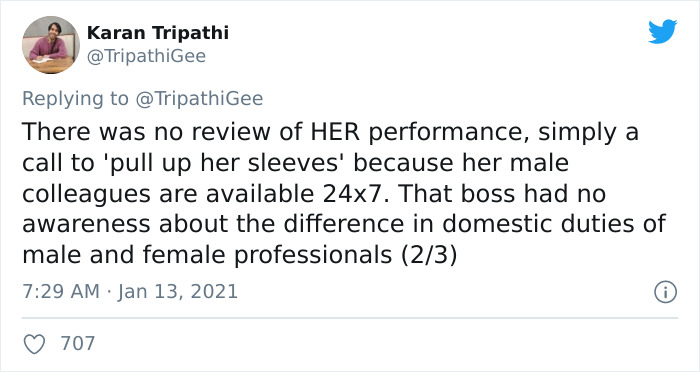
Image credits: TripathiGee
But there are, of course, red flags in working from home culture that shouldn’t be ignored. Many people around the world lack facilities, like internet, computer, or a private room, to work from home effectively.
Bloom says that the number of people who can indeed work from home is only a half of all the US labor force. “Only 51 percent of the survey respondents—mostly managers, professionals, and financial workers who can carry out their jobs on computers—reported being able to work from home at an efficiency rate of 80 percent or more.”
According to Karan, women workers like his sister are especially struggling to navigate professional and personal life
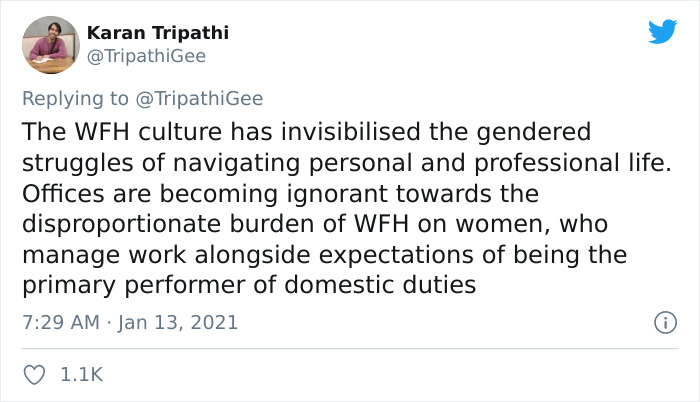
Image credits: TripathiGee
Meanwhile, the workers of retail, healthcare, transport, and business service have no such option since they “need to see customers or work with products or equipment.”
As a result, “these things are generating a time bomb for inequality,” Bloom warns. “Our results show that more educated, higher-earning employees are far more likely to work from home—so they are continuing to get paid, develop their skills, and advance their careers.” And those who are unable to work from home are likely to be left behind.
People on Twitter joined the debate on workplace culture and its pressure to be available 24/7
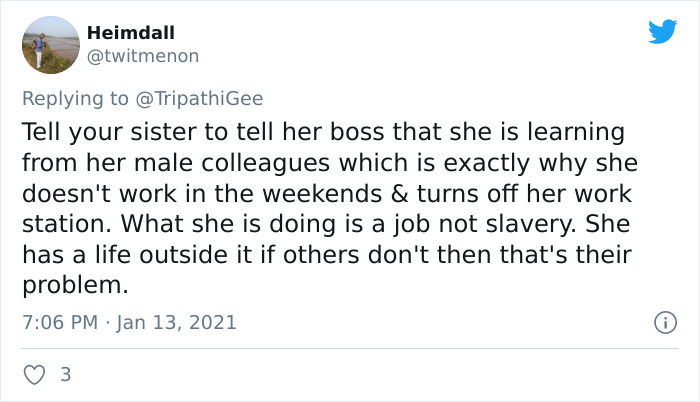
Image credits: twitmenon

Image credits: ashimc89

Image credits: samanwaya_et

Image credits: nesoron
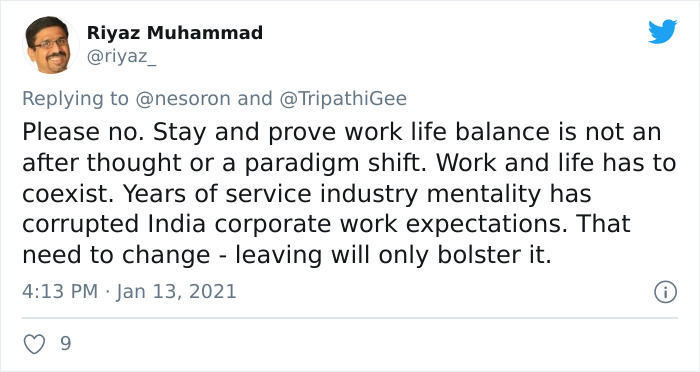
Image credits: riyaz_
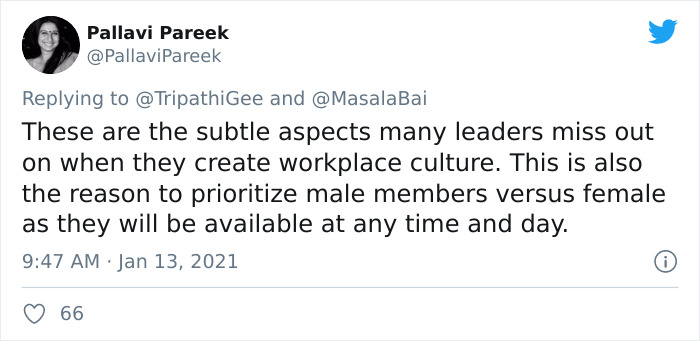
Image credits: PallaviPareek
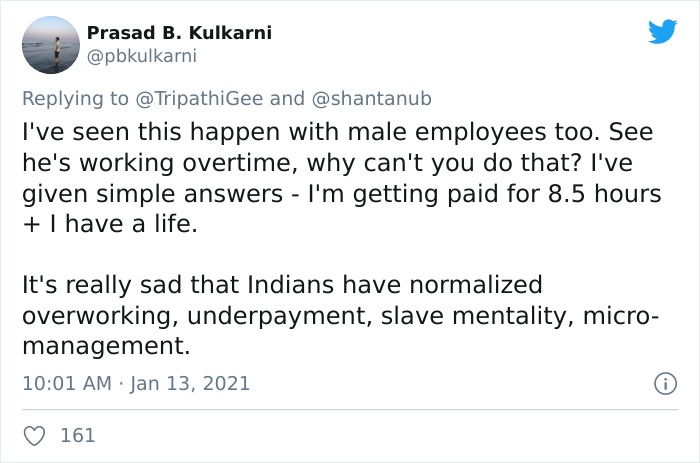
Image credits: pbkulkarni
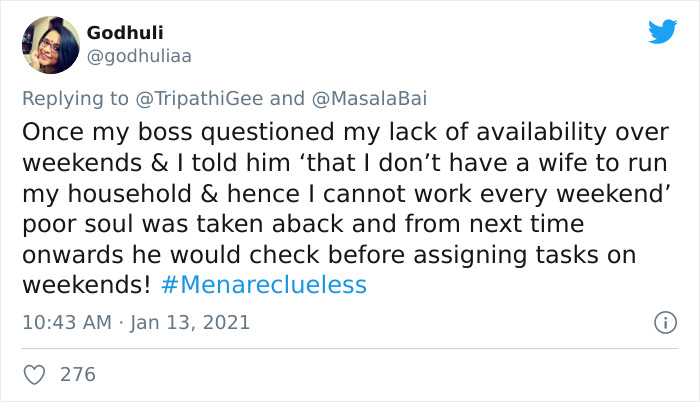
Image credits: godhuliaa

Image credits: cnuga

Image credits: waghobhaa
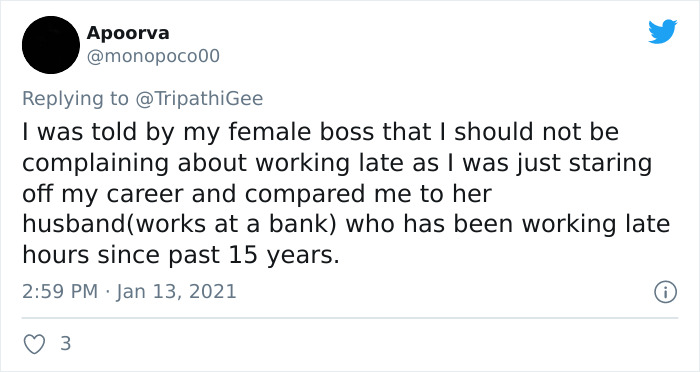
Image credits: monopoco00
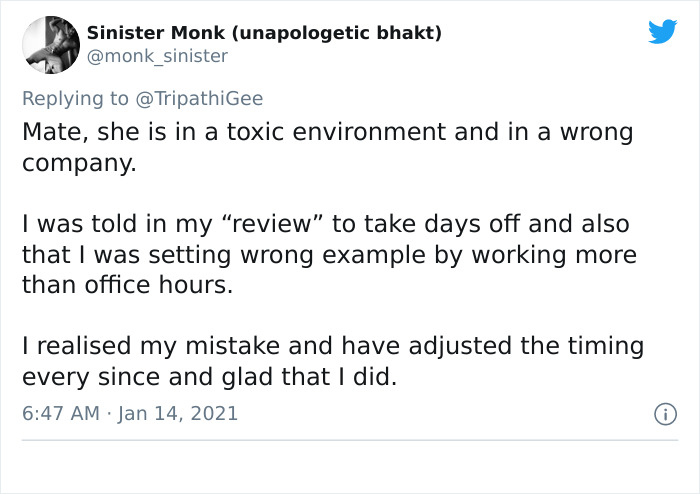
Image credits: monk_sinister
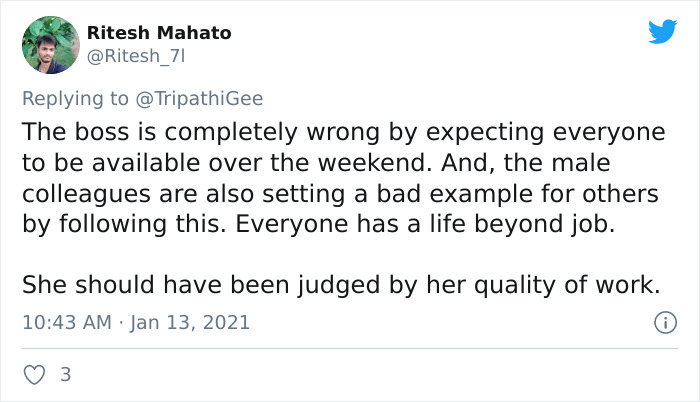
Image credits: Ritesh_7l
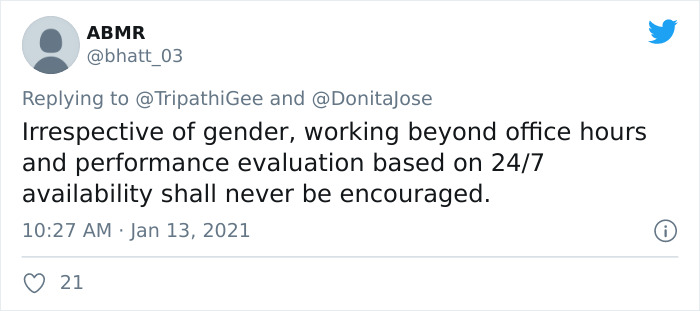
Image credits: bhatt_03

Image credits: truly_biased
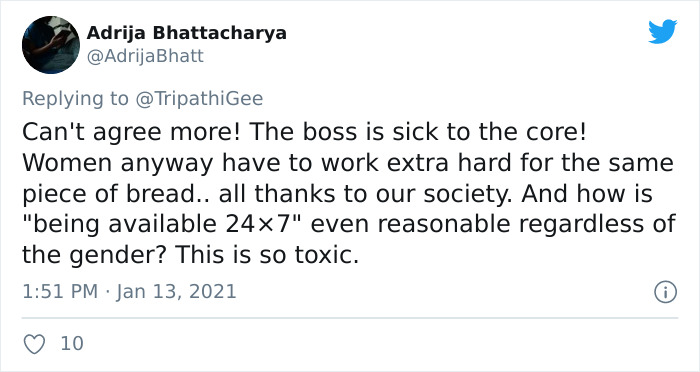
Image credits: AdrijaBhatt

Image credits: SnehalJadhav001

Image credits: Myaa0
The post Boss Tells Female Employee She Should Be Available 24/7 Like Her Male Colleagues, People Call Him Out For Being Toxic first appeared on Bored Panda.
from Bored Panda https://ift.tt/39H3NMo
via IFTTT source site : boredpanda